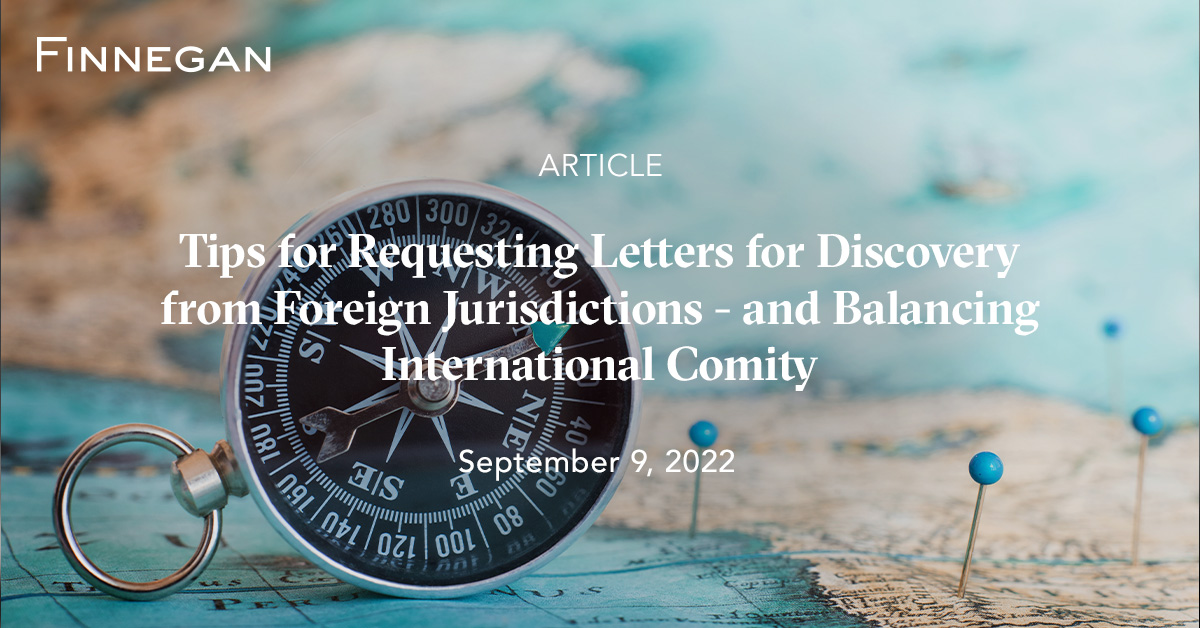Common Difficulties Faced When Carrying Out Letters Rogatory Requests
Common Difficulties Faced When Carrying Out Letters Rogatory Requests
Blog Article
Letters Rogatory Explained: Facilitating Legal Collaboration Between Countries

Definition of Letters Rogatory
Letters rogatory are formal requests made by a court in one jurisdiction to a court in another territory, seeking aid in obtaining proof or testament for a legal action. This step-by-step mechanism is important in the context of global law, where lawful systems might vary, and cross-border collaboration is essential. Letters rogatory facilitate the event of info that might be essential for adjudicating situations, specifically in instances involving complicated multinational concerns.
Typically, these requests develop in civil, criminal, or management issues where an event requires evidence that lies outside the jurisdiction of the requesting court. The letters function as a way to make sure that the concepts of due procedure are promoted, making it possible for courts to access evidence that might otherwise remain inaccessible because of legal or geographic barriers.
The use of letters rogatory is governed by international treaties, bilateral agreements, or domestic laws, which delineate the procedures and obligations of the courts involved. It is very important to note that the execution of such requests is not guaranteed; they rely on the regulations and techniques of the territory getting the letter. Therefore, letters rogatory are a critical tool for fostering lawful collaboration and making certain justice across boundaries.
The Process of Issuing Letters Rogatory
Issuing letters rogatory involves an organized procedure that makes sure compliance with both domestic and global legal criteria. Originally, the asking for celebration, generally a court or legal authority, composes a formal request describing the nature of the help sought, the proof or info needed, and the lawful basis for the demand. This file has to be exact to help with understanding by the international jurisdiction.

The next step includes transferring the letters rogatory to the assigned international authority. This is usually done via diplomatic networks or global lawful support frameworks, guaranteeing that the request is gotten and recognized by the international court. The international court after that refines the demand according to its own lawful treatments, ultimately reacting to the requesting party with the sought-after information or proof, therefore helping with international lawful teamwork.
Significance in International Law
The value of letters rogatory in global legislation can not be overemphasized, as they act as a critical system for judicial cooperation throughout borders. These official ask for assistance in lawful matters permit courts in one jurisdiction to inquire, evidence, or the existence of witnesses from another territory, thus promoting the administration of justice in global situations.
Letters rogatory are particularly crucial in the context of globalization, where legal disagreements typically extend several countries. They make it possible for the collection article of evidence that might or else be unattainable, making certain that legal process are informed and fair. By cultivating collaboration in between judicial systems, letters rogatory aid support the regulation of law and advertise common respect among countries.
Furthermore, the usage of letters rogatory demonstrates a commitment to worldwide standards and principles of teamwork, mirroring the interconnected nature of contemporary legal techniques. It highlights the relevance of adhering to well established treatments and treaties, such as the Hague Convention, which offers a framework for these demands - Letters rogatory. Inevitably, letters rogatory enhance the effectiveness of lawful procedures, ensuring that justice is not hindered by geographical limits
Difficulties and Limitations
Regardless of their importance, letters rogatory face several difficulties and restrictions that can hamper their performance. One key issue is the varying legal frameworks and treatments throughout territories, which can bring about misconceptions and hold-ups read review in the execution of demands. Various nations might have distinctive needs for the legitimacy of letters rogatory, complicating the procedure further.
Additionally, the typically drawn-out nature of global lawful teamwork can prevent prompt accessibility to evidence or witnesses. This delay may adversely impact lawful process or recurring examinations, specifically in instances calling for immediate activity. Additionally, the absence of sources and training in some territories can lead to inadequate handling of requests, resulting in incomplete or inadequate actions.
Social distinctions and varying mindsets in the direction of lawful processes can additionally present considerable barriers. For circumstances, nations with less official legal systems may battle to conform with the procedural roughness expected in letters rogatory. Political tensions in between countries can influence the readiness to carry out demands, resulting in a lack of participation and decreasing the energy of this mechanism in worldwide regulation. These difficulties demand continuous discussion and reform to enhance the effectiveness of letters rogatory in lawful collaboration.
Instance Studies and Examples

On the other hand, obstacles can occur, as seen in an instance involving a European country looking for proof in an ongoing criminal issue from a non-EU country - Letters rogatory. The process was go to website delayed as a result of bureaucratic obstacles and varying lawful standards, eventually preventing the investigation
These examples show that while letters rogatory can promote international collaboration and quicken lawful proceedings, they likewise highlight the demand for clear communication and understanding of legal frameworks between nations. Such instance researches emphasize the relevance of refining this tool to enhance effectiveness and efficiency in international lawful issues.
Verdict
In summary, letters rogatory offer as an important system for assisting in legal teamwork in between nations, ensuring the collection of proof and testament throughout jurisdictions. Their relevance in global regulation can not be overemphasized, as they advertise due process and enhance the efficiency of cross-border lawful process.
Letters rogatory are official requests made by a court in one jurisdiction to a court in another jurisdiction, seeking aid in obtaining proof or testimony for a legal proceeding. The requesting event, normally a court or legal authority, drafts a formal request detailing the nature of the assistance sought, the evidence or details required, and the legal basis for the demand. The foreign court then refines the demand according to its own lawful treatments, ultimately responding to the requesting celebration with the desired information or proof, thus facilitating global legal participation.
Furthermore, the usage of letters rogatory shows a commitment to global standards and concepts of collaboration, showing the interconnected nature of modern legal techniques.Worldwide lawful collaboration through letters rogatory is not without its real-world implications, as shown by various situation research studies that highlight both obstacles and successes.
Report this page